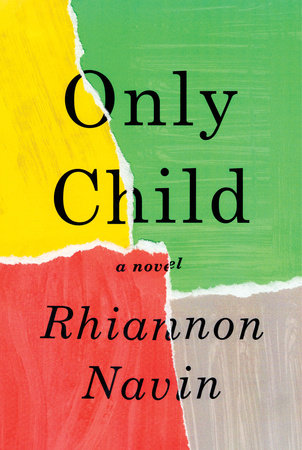How Losing Ourselves in Stories Can Help Us Find Our Greater Truths
by Rhiannon Navin
Books can be a great escape, a chance to dive into another world and take a break from our own for a while. We get to sample someone else’s life, then resurface, having (hopefully) learned something that we didn’t know or hadn’t considered before. This has always been the case for me. Reading a good story centers me when my life appears overwhelming; it gives me perspective, and I can sometimes see the same happening to my own children. I feel incredibly lucky that my three children are avid readers like me, and I love nothing more than seeing them get sucked into a book. The way they discover and interpret the stories they read, dipping in and out of other worlds, is fascinating for me to watch — and, in some ways, these experiences have inspired the central character in my novel, Only Child.
The protagonist of Only Child is a first-grader named Zach. Zach is your typical 6-year-old boy and, in fact, he reminds me a lot of my own sons when they were Zach’s age. Zach is curious and inquisitive, he loves trucks and cars, art and music, and above all he loves to read. When Zach’s family experiences an unspeakable trauma — Zach lives through a shooting at his school during which his older brother Andy is killed — the adults in Zach’s life grapple with their grief in different, all-consuming ways and Zach is largely left alone to try to make sense of his conflicting and confusing emotions. As I tried to imagine how Zach might attempt to navigate such a lonely situation, I immediately gravitated towards reading as a natural outlet for him.
When I first started writing Only Child, I wasn’t planning to include the Magic Tree House books. And yet, the more I progressed with Only Child, the more it made sense that they would be the books to offer Zach a much-needed escape. Mary Pope Osborne has created a series that is truly magical. I don’t know any other children’s series that celebrates the power of books quite like hers. Each book in the series is a gateway to a new adventure for her two protagonists, siblings Jack and Annie, and for her readers. Jack and Annie find a tree house in the woods close to their house that is filled with books. Each of the books allows them to jump into a new world, where they experience an incredible adventure and learn so much along the way. All Jack and Annie have to do is open one of the books in the tree house and say, “We wish we could go here,” and they’re literally transported into a different world. My kids were about Zach’s age when we read the Magic Tree House series and they loved accompanying Jack and Annie on their adventures. The books sparked many great conversations in our house as we learned about dinosaurs, Vikings, the Civil War, and so many other fascinating topics.
Similarly, Zach gravitates towards Mary Pope Osborne’s extraordinary tales. Not only does losing himself in a world of books allow Zach to escape his confusing new reality for a little while, but it also proves to be instrumental to his ability to process the traumatic experience he was forced to live through and to grieve the profound loss of his brother. As Zach dives into the Magic Tree House adventures, he tags along when Jack and Annie set out on a quest to find the “secrets of happiness” to help the ailing magician Merlin. These secrets turn out to be invaluable lessons in compassion and kindness, and Zach decides he wants to try to apply them to his own situation. He learns about the importance of being caring and empathetic and resilient against all odds. So it is Zach, with his newfound understanding of these universal truths, who manages to alleviate the conflict between his mother and the shooter’s family, to lead his grieving family and their community toward a path of compassion and forgiveness and a chance to heal, together.

